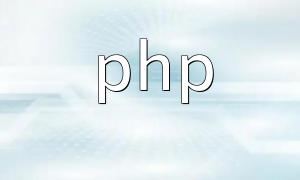When developing web applications, error handling is crucial. PHP provides a powerful exception handling mechanism, and Slim, as a lightweight PHP framework, offers a simple and effective way to capture and manage errors. This article will explore how to handle exceptions in Slim framework to help developers ensure the stability of their applications.
In the Slim framework, we can create custom exception classes to capture and handle errors more precisely within the application. This is done by extending PHP's built-in Exception class to define custom exception behavior.
class CustomException extends Exception {
public function __construct($message, $code = 0, Exception $previous = null) {
parent::__construct($message, $code, $previous);
}
public function __toString() {
return "{$this->message} ({$this->code})" . $this->getTraceAsString();
}
}In Slim framework, the try-catch blocks are widely used to catch any potential exceptions that may occur. This method allows us to handle different types of exceptions and ensure the application does not crash due to uncaught exceptions.
$app->get('/user/{id}', function($request, $response, $args) {
try {
// Perform actions that may throw exceptions
$user = getUser($args['id']);
return $response->withJson($user);
} catch (CustomException $e) {
return $response->withStatus(500)->write('Custom Exception: ' . $e->getMessage());
} catch (HttpNotFoundException $e) {
return $response->withStatus(404)->write('Not Found');
} catch (Exception $e) {
return $response->withStatus(500)->write('Unknown Exception: ' . $e->getMessage());
}
});In addition to adding try-catch blocks in each route, we can use middleware to globally handle exceptions across the application. This reduces repetitive code and improves maintainability.
class ErrorHandlerMiddleware extends SlimMiddlewareErrorMiddleware {
public function __invoke($request, $response, $next) {
try {
$response = $next($request, $response);
} catch (CustomException $e) {
$response = $response->withStatus(500)->write('Custom Exception: ' . $e->getMessage());
} catch (HttpNotFoundException $e) {
$response = $response->withStatus(404)->write('Not Found');
} catch (Exception $e) {
$response = $response->withStatus(500)->write('Unknown Exception: ' . $e->getMessage());
}
return $response;
}
}In this example, we created a middleware named ErrorHandlerMiddleware. When an exception occurs during the application's execution, this middleware attempts to catch and handle the exception. This approach is suitable for global error handling, reducing redundant exception handling code.
In Slim framework, exception handling is critical for ensuring the stability and reliability of your application. By using custom exception classes, try-catch blocks, and middleware for global exception handling, developers can easily address various error situations and enhance system robustness.
With the techniques described in this article, you can more efficiently handle exceptions in Slim framework and build more reliable PHP applications.








